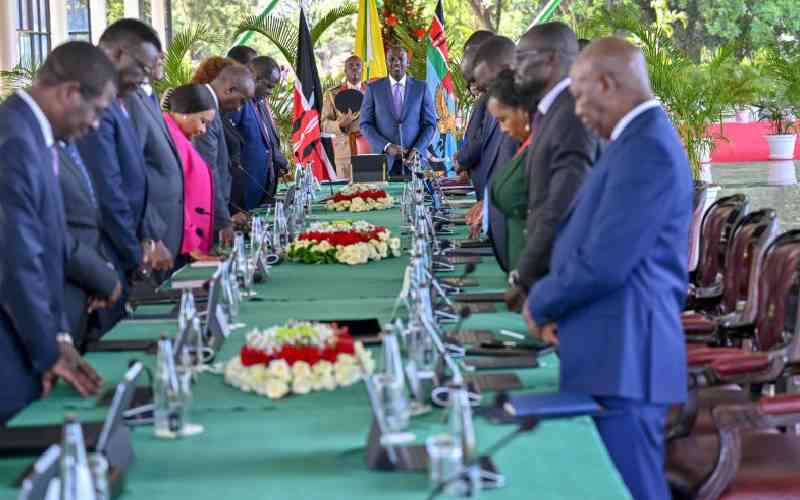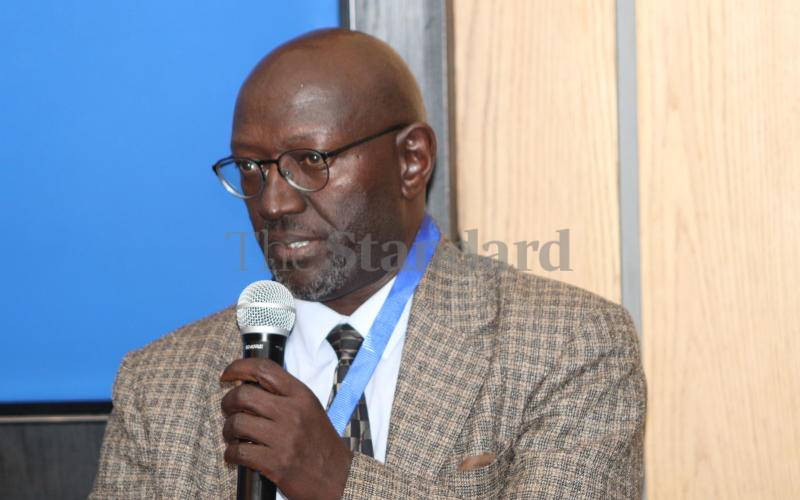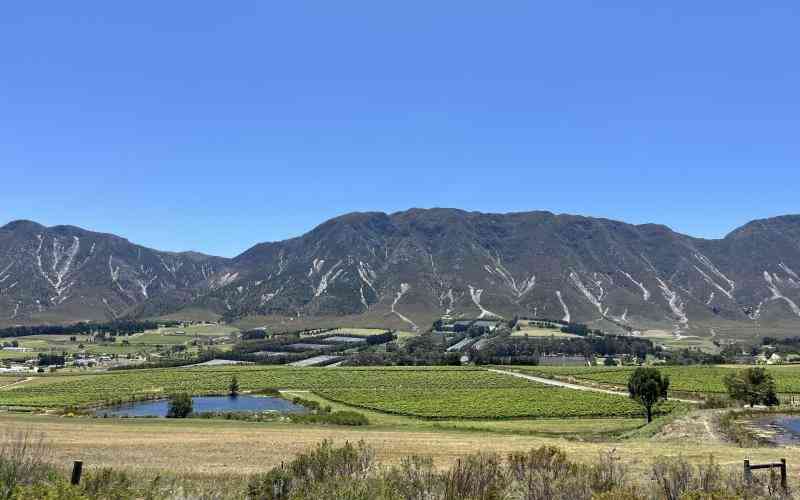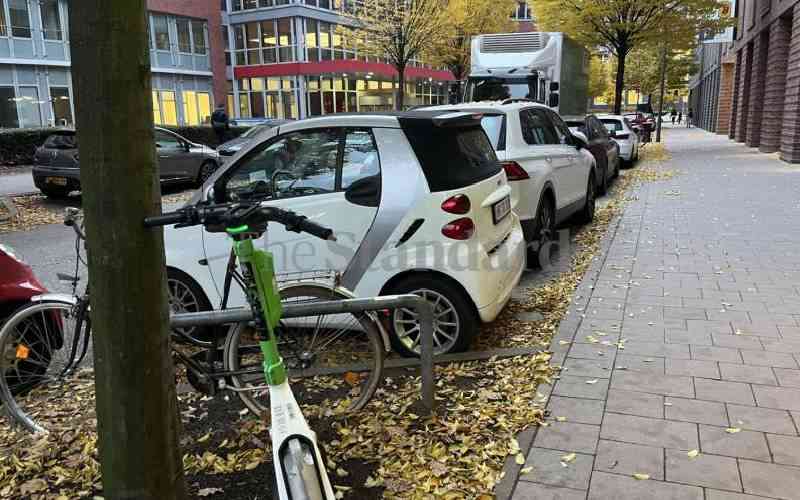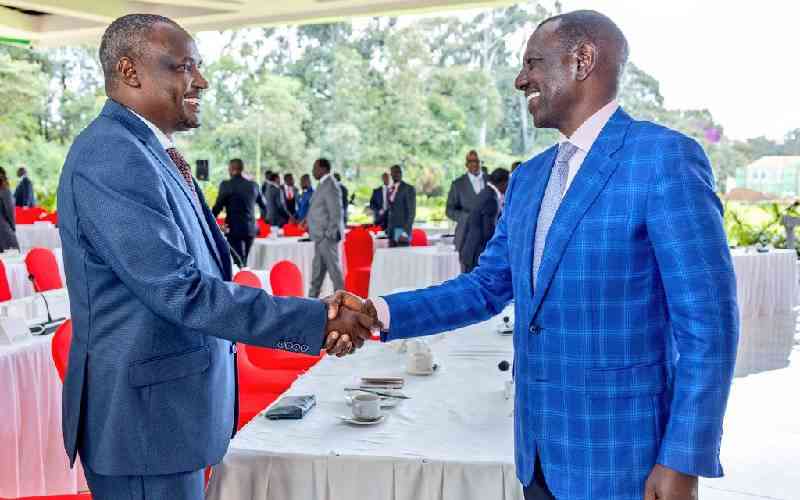
Last week, we discussed why we loved to hate science and math, despite their applications in life and career opportunities that transcend continents.
Were social sciences a blissful escape? We had history, geography, religion, languages, and other subjects taught in our schools.
They, too, had their problems. One is their detachment from reality and the excessive focus on what is written. For example, I remember a radio broadcast about the Dutch leaving Holland for South Africa in 1652, led by Jan Van Riebeeck (1619-1677).
Later, we learnt about the Great Trek and early humans like Zinjanthropus, Cro-Magnon, Neanderthal, and others.
All these events and people were far removed from us. We never met any of the early humans.
Curiously, one of the leaders in elevating early humans to celebrity status was Richard Leakey, whose father was a priest. Was he rebelling?
The study of early humans should not be in our syllabus. It only confuses innocent minds. Take this example: In folklore, the Maasai came from the sky; in religion, they were created; in history, they evolved. What should a student believe? The same applies to other communities.
This intellectual dissonance should be minimised. Can we remove early human studies from the syllabus? Why should I know what early humans ate but not why tribalism and racism thrive in the age of the internet and space travel?
It gets more fascinating. The Boers, the Dutch from Holland or Afrikaans, did not stop in South Africa’s Orange Free State after losing wars to the British. They left for Kenya around 1900, settling in Eldoret and Ol Kalou areas. The weather and vegetation there are very similar to the Highveld. The Great Trek ended in Kenya. Can anyone contest that?
In Nyahururu, they had a Dutch Reformed Church (sold to AIC, for how much?), a cemetery, and Jan Van Riebeeck School (now Ndururumo High School).
Yet, our history says so little about these events. I find it curious that as I listened to the radio broadcast, the Dutch Church, school, and cemetery were just 30km away. And 3 km away were some Afrikaans graves, one with the inscription “Anna Maria Cornelia Crous; born 1886 - died 1940.”
The Afrikaans settlers who lived near my village had names like J. Kruger, Joubert de Wet, Van Straaten, and Van Rensburg. Some of the jurors listed in the Kenya Gazette dated May 27, 1935, include Steenkamp, Steyn, Van De Merwe, and Van Straaten.
Some Kenyans studied history up to the university level. I can bet this was never covered. The history of colonialism in Kenya focuses on the British; rarely are the Afrikaans (Boers) mentioned. Curiously, “kaburu,” the local name for Boers, has remained. It connotes harshness. Why were they harsh, or is it a myth?
It gets more fascinating. My primary school had a mzungu house. I didn’t know his name until five years ago. But all those years, I knew about Zinjanthropus, Vasco da Gama, Hitler, and music and movie stars. See the disconnect?
We were taught about WWII, but my WWII veteran neighbours were never brought to class! Who has more knowledge about WWI or WWII than veterans?
Though I grew up next to a national park, I did not know I could be a tourist! How many Kenyans know Idi Amin Dada left some children in Murang’a where he hunted Mau Mau?
What about religion? Why did we copy the American Constitution and not their Protestant work ethic and separation of church and state? Why did Americans separate the two so early, at the start of the republic? Is that discussed in CRE lessons? Why do we give ourselves foreign names like Liam and Jayden?
Let’s bring in economics. How often do we use hawkers as examples of entrepreneurs, in the same class as Bill Gates or Elon Musk? Isn’t Gikomba similar to a futures market? Have you ever noticed how closely our traditional proverbs mimic the laws of economics?
Why don’t lawyers use plain English? I don’t need to be a lawyer to access judgments of the US Supreme Court. Why do our lawyers and judges still wear wigs?
Why do we stop learning our mother tongues in primary school? Why can’t I get a BSc in Dholuo, Chaga or Maa? Why do we deny our kids the joy of learning their mother tongues and the wisdom transmitted therein?
Asians speak their mother tongue and head IBM, Google, and Microsoft. I must have annoyed enough readers by now!
Learning should be fun, easy, and contextualised. Think of Albert Einstein’s equation, E=mc^2. It describes how nuclear bombs work and how we get energy from the sun.
E is for energy, M is mass, and c is the speed of light (300,000km per second!). Why do we spend so much energy complicating things?
Sorry for awakening the ghosts of the past. But you have children or grandchildren. Which social science subjects did you study and wish had a bigger dose of reality? Talk to us.
 The Standard Group Plc is a multi-media organization with investments in media platforms spanning newspaper print
operations, television, radio broadcasting, digital and online services. The Standard Group is recognized as a
leading multi-media house in Kenya with a key influence in matters of national and international interest.
The Standard Group Plc is a multi-media organization with investments in media platforms spanning newspaper print
operations, television, radio broadcasting, digital and online services. The Standard Group is recognized as a
leading multi-media house in Kenya with a key influence in matters of national and international interest.

